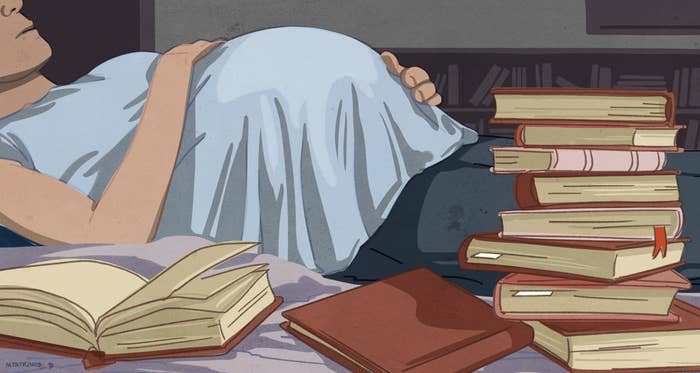
The books that I can't finish have been stripped of their dust jackets. They lie scattered around the house, the author's name a reproach along the spine. In the bedroom, Haruki Murakami's half-read 1Q84 is the bedrock of a tower of other books — all read, some more than once — that has grown tall in the past year. In the living room, The Kept, by James Scott, one of my former teachers, nestles among tooth-shredded board books and crumpled copies of Highlights magazine; its pages are by far the most pristine on the shelf.
It would be kindest to explain these books, and their cohorts, with a sheepish smile and a carnival barker's sweeping arm: Witness the coffee can of stubby crayons at the dining room table! Step lively — there are Cheerios underfoot! Of course I don't finish books; I have two children, ages 4 and 2.
The truth is less spectacle than private shame: I read a lot, almost as much as I did before I had kids. The first months of my baby's life coincided with another blessed arrival — that of my e-reader — and in his earliest weeks of 24-hour nursing and soothing, I finished 42 books. But I can no longer read books, or write stories, in which terrible things happen to children. As a reader, depictions of child suffering yank me violently from the safe world of narrative and into real, corporeal panic. As a writer, an unwelcome foreboding prevents me from letting my deepest fears pour out onto the page.
I am a better mother for this bargain, more capable of shaking off a parent's day-to-day anxieties without such ugly imagery residing in my head. I am also an incomplete reader and a constricted writer, these once-dominant parts of me now halved and quartered.
I can't decide: Was it a good trade?
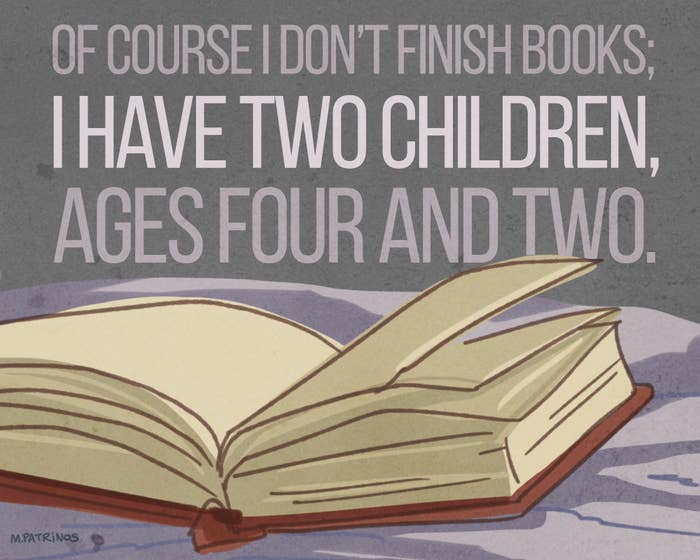
A teacher told me that the key to writing fiction is not to look into your own heart, but to try to see into someone else's. I took it as my credo with no qualms. I had no trauma to reveal, no compelling secrets; where else would I find my subjects if not within others?
Yet even as I squeezed into the minds and bodies of the characters I invented, details from my own life crept in. I began writing fiction at the end of the tumultuous year after my boyfriend's stepfather's death, never realizing how much of the experience was still churning inside me until I turned it loose in my stories. The images snapped to life like a flame: the Orthodox Jewish funeral, where I policed the buffet table to prevent violations of kosher law; the collage of children's art on the kitchen wall, where fifth-grade masterpieces shed crumbling poster paint; the bereft cocker spaniel, who hurled his creaking frame against the bathroom door whenever I closed it behind me.
I knew that I couldn't tell these stories from my own point of view — I was weary, angry, and obsessive over trivialities. So I invented other protagonists and had them examine the situation with something like detachment, finding their own emotions from a different source. I pulled the threads of my own narrative and spooled them out until I could look at the whole experience with a distant, critical eye. My own struggles faded. I was empowered, having rewritten my own story until it was one I could embrace. I got married, to the same boyfriend, and started a graduate program in creative writing.
There, I grew bolder. I took on stories about my fears: secrets kept between husband and wife, jealous siblings who drove a wedge into marriages. I wrote about the shifts and tests of adulthood, efforts to buy a home, succeed at a job, have children. I remember my first story about pregnancy loss: In it, a woman attends a party with all of her friends, a few days after experiencing a miscarriage. Her friends all knew of the pregnancy, but she cannot bring herself to tell them of its end. I remember feeling proud as my character's growing anxiety poured out in paragraphs, leaving me clear-eyed and calm behind the keyboard.
I finished graduate school. I kept working on those stories, revising, polishing, in some cases starting all over again. I sent them out, got them back, and sent them out again.
Then I got pregnant, and a line was drawn, as dark and vivid as the streak of melanin crossing the arc of my belly: Part of the world was off-limits to me now.
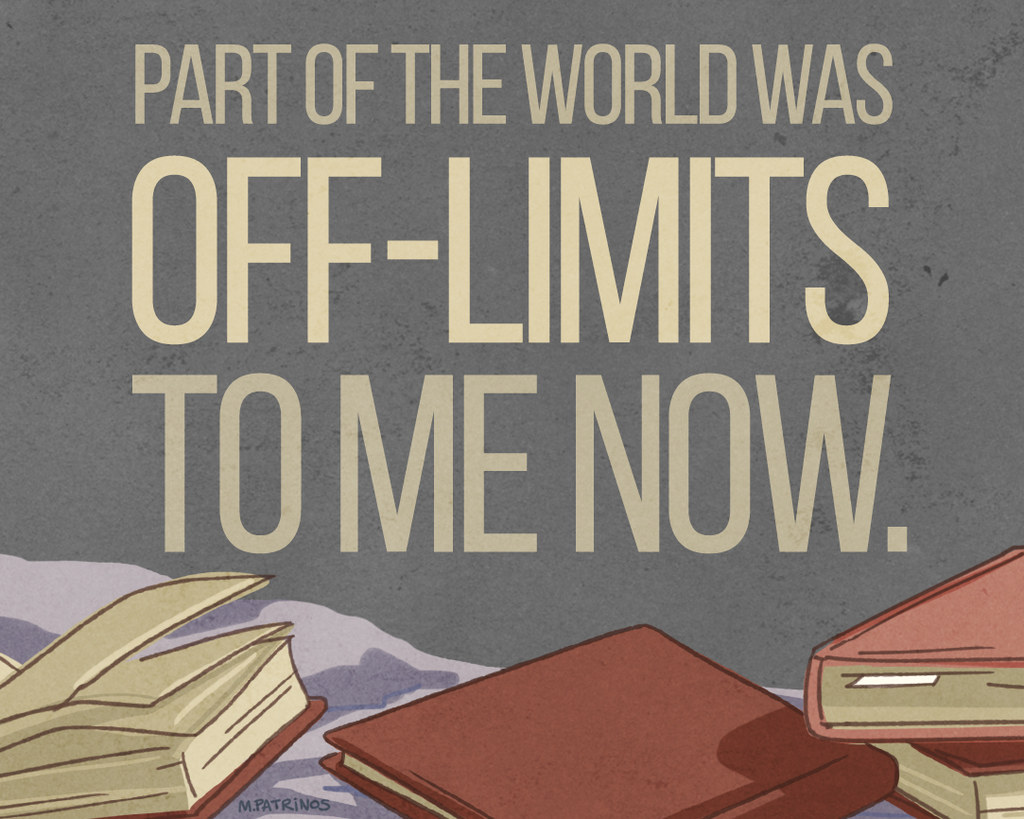
My first pregnancy was defined by a book that I thought of every day and would not read: Elizabeth McCracken's An Exact Replica of a Figment of My Imagination. Elizabeth's mother was a one-woman slate of editorial standards at the university magazine where I worked until I got pregnant, and Elizabeth's story of a pregnancy loss at eight months was well-known. No one knew what tone to use when speaking of the book. It was an accomplishment worth crowing over, but it emerged out of an event that could only be discussed in whispers.
Perhaps my daughter knew, even then, that she had to keep me from driving myself crazy; she was never still long enough for me to become afraid. At night, as I lay in bed, she would stretch inside me, sprawling her long limbs into the recesses of my ribs and hips. In the mornings, she woke when I did, greeting me and the day with a lazy roll. After long walks, lulled into sleep, she would rise with a bout of hiccups, tiny bursts that felt like a piece of Bubble Wrap popping.
Still, I would not read the book during my first pregnancy or my second. I see now that my forbearance made no sense; not reading the book didn't erase my knowledge of what had happened. The possibility of tragedy was no less real, even gleaned thirdhand. But it wasn't until my son was born, last year, and we felt our family was done, that I picked up Elizabeth's memoir and began to read.
It was magnificent — honest and vivid and even funny. I devoured it in a delirious fog of exhaustion, with a weeks-old baby in my arms, and even as I fell into the spell of her narrative a part of me was saying to my son, This story can exist only because you do, too.
By contrast, I made it a third of the way through 1Q84 before the rapes prevented me from sleeping at night. My daughter appeared every time I closed my eyes and my chest trembled with the relentless pounding of my heart. I tried to calm myself with logic — the girls were hurt by a cult leader; you are not in a cult, ergo your daughter is safe. I reminded myself that the entire novel was set in an alternate, concurrent reality. I stopped reading Murakami before bed and tried to find time for him during the day. Then I just stopped.
I could read An Exact Replica of a Figment of My Imagination only when I felt sure that I would never have the experience she described. I couldn't read 1Q84 because it was possible, however remotely, that I might. Empathy was too risky, too raw; it was easier to avoid it entirely from now on.
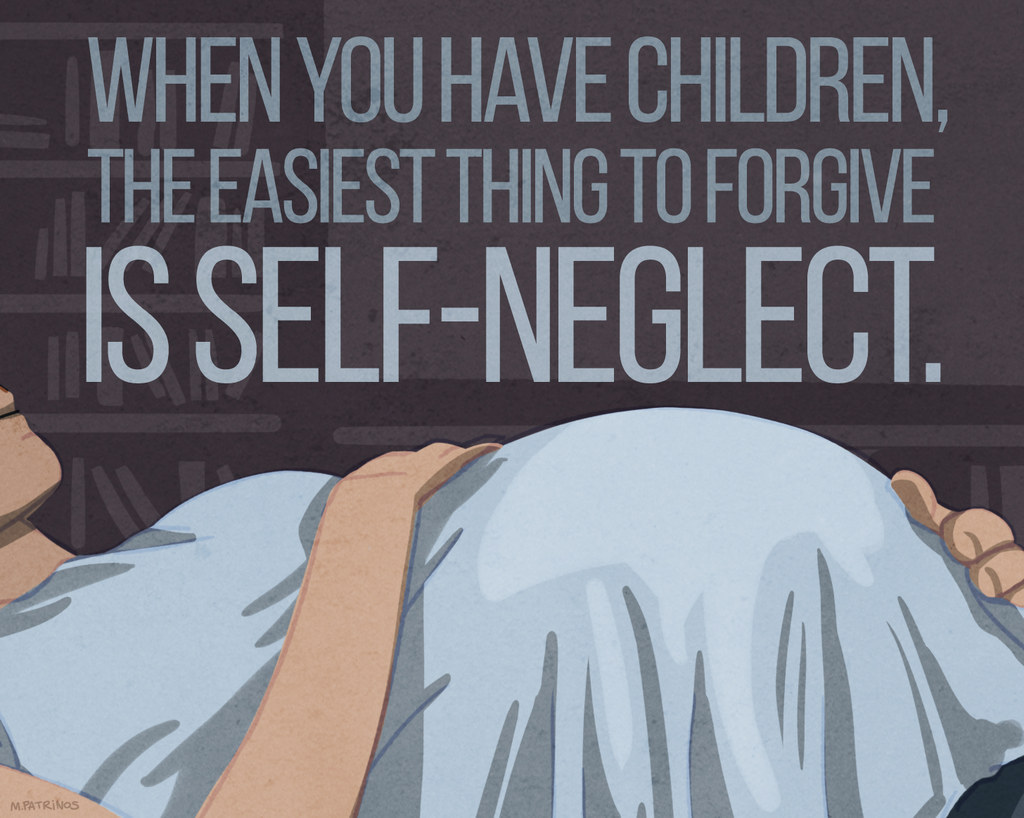
Of course my writing has suffered. At first every parent's writing suffers; when you have children, the easiest thing to forgive is self-neglect. We excoriate ourselves for packing non-organic milk in the lunchbox, but when it comes to the individual desires and values that make us who we are, we are generous in absolution. Of course you didn't have time to exercise; of course you're too tired to write.
Little by little, though, small milestones freed me. My children slept through the night, stopped nursing, started school and made friends and discovered the joys and excitement of the world beyond me. I no longer woke before sunrise and spent hours walking a slow circle around the dining room table. I had time to exercise and eat meals. It was my cue to turn back to the world beyond them and the necessities of providing for them — my world of writing. I set small goals for myself, 15 or 20 minutes of writing at a time, no assignments, no word counts.
The struggle shocked me. I had thrown off the old, crippling pressures of deadlines and standards. Now, a terrible sense of possibility hovered near me like an overeager editor, striking danger from the page as soon as it was placed. My characters careened alarmingly into bland, even lives. They stayed far from tragedy and emotional turmoil. Sometimes I forced them to do something disruptive — to hurt another person, to desire something awful — and they went through the motions stiffly, resistant to their very natures. I persisted, taking classes, meeting with my workshop. I made new outlines and character sketches, and typed "WHAT'S AT STAKE?" at the top of every page. When I read my finished stories, the result was always the same. My characters were protected from evil, sheltered from sadness. They were mothered, and lived in a mother's world. As any good reader knows, the story begins only when the mother's world is cast aside and the character is free.
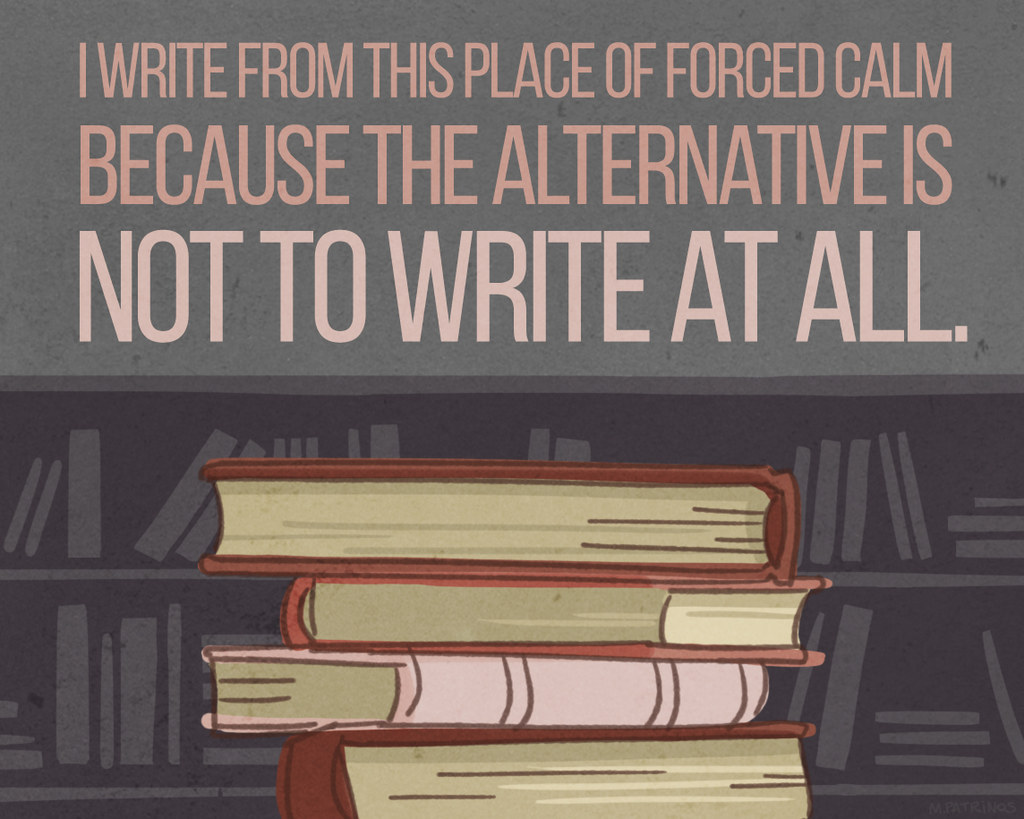
My children are 4 and 2. It's been four years since I've had a new story published, four years of vapid, unchallenging books read and forgotten. It's been four years of discovering a depth of feeling within myself that I never thought possible — an engulfing kind of love and tenderness, accompanied by pitiless vulnerability. The emotions of the world feel dangerously near to me at all times, ready to be snatched from thin air. I could let them into my reading and writing, but then I would have to allow them into my life as well, every time a fevered cry interrupts the night or a shriek carries across the playground.
I write from this place of forced calm because the alternative is not to write at all. I could accept that the free-spirited imagination I once had has been forever subsumed by parenthood. But I fear that would bring its own hazards. My writing, however stunted, still brings me the peace that comes from recognizing and feeding a part of myself. In turn, I bring that peace to parenting, able to give more of myself to my children because I am still a writer, even if only half the writer I want to be. My reading, however childlike in its indiscriminate hunger, still provides a similar solace. These aspects of me are changed, but not unrecognizable; if they remain, even amputated, there is hope for regeneration.
My unread books will stay on my shelves and by my bed, their covers gathering dust while their pages remain crisp. They'll remain because someday, whether I seek it out or not, something will shatter the calm that I try to conjure each day. At some point my children, like my characters, will want to break out of the world that I've created, and go beyond my shelter and my protection.
When that happens, no doubt they'll encounter terrible things, acts of horror and brutality that they can't understand, and that I can't explain. Then, I'll turn to 1Q84, or The Kept, or or any of the rawly beautiful stories that draw emotion to the surface. Then, I'll be grateful for stories about rape and abuse, for works of fiction that expose terrible acts with a novelist's care and protective remove. It's another bargain, a new deal offered up like a prayer — this harsh work of imagination in exchange for the stark, unfiltered evils of the world — and it will seem like the best trade I could have made.
***
Jessica Ullian's essays and short stories have appeared in Slate, Slice, and Upstreet, and won recognition from Glimmer Train and The Review Review. She lives in Boston and is completing The Relief Season, a novel about hurricane relief workers. Follow her on Twitter at @jessicau.
